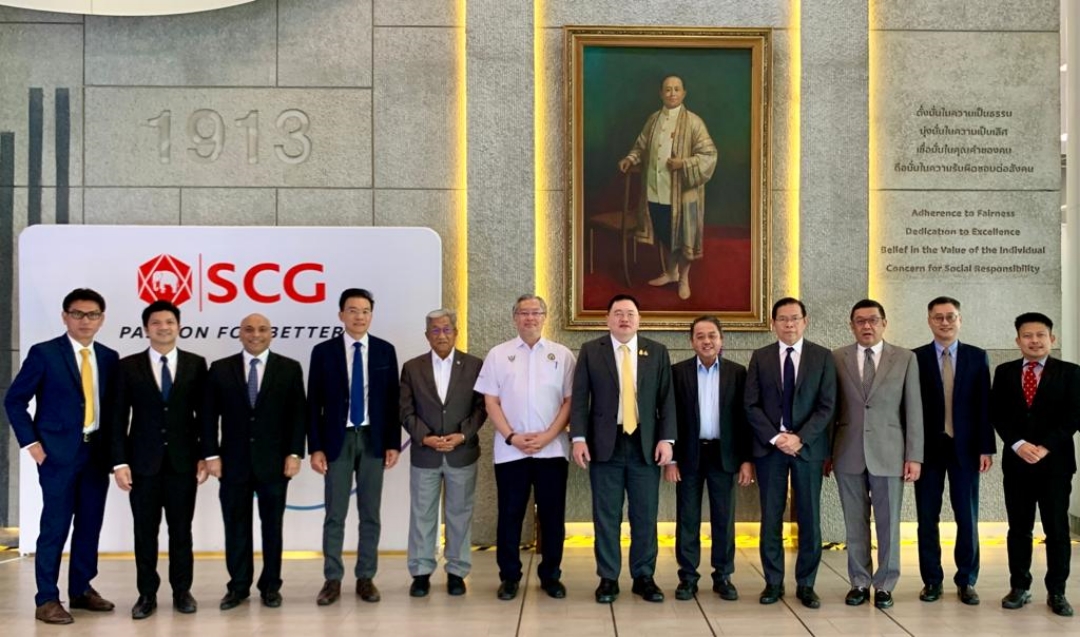
Aziz (fifth, right) and Yakup (fifth, left) other officials from Sarawak meeting with SCG officials in Thailand recently. – Photo via Ukas
KUCHING (Dec 22): The Sarawak Economic Development Corporation (SEDC) and the Bintulu Development Authority (BDA) is planning to form a joint-venture company to look into the possibility of importing between 500,000 to 1 million tonnes of cement from Thailand from 2023 to address the supply shortage in the state.
In a statement today, SEDC and BDA made a study visit to the Siam Cement Group (SCG) head office in Bangkok, Thailand recently to explore the possibility of forming a joint-venture company to import cement from SGC.
The Sarawak delegation was led by SEDC chairman Tan Sri Datuk Amar Abdul Aziz Husain and BDA general manager Datu Muhamad Yakup Kari.
Also present during the visit were State Financial Secretary Dato Sri Dr Wan Lizozman Wan Omar and Deputy State Secretary (Economic and Development Planning) Datu Dr Muhammad Abdullah Zaidel.
The expected outcomes of the initiative will see an increase in supply of cement for Sarawak to address the immediate need of the construction industry as the move will also ease the shortage and price hike of cement in Sarawak.
The statement said the shortage of cement supply in Sarawak has also affected cement price with the average unit price of cement in the state is 15 per cent higher than in Peninsular Malaysia and four per cent higher than in Sabah.
The supply and price issues have impacted and delayed major development projects in Sarawak, it added.
Importation of cement is subject to Certificate of Approval issued by Construction Industry and Development Board (CIDB) while Ministry of Domestic Trade and Cost of Living (KPDN) is the custodian for policy decisions on the import of cement.
In 2021, Sarawak has imported lime, cement and fabricated construction materials with a total value of RM206.6 million, mainly from Peninsular Malaysia (RM112.83 million), Indonesia (RM56.3 million) and China (RM13.6 million).
